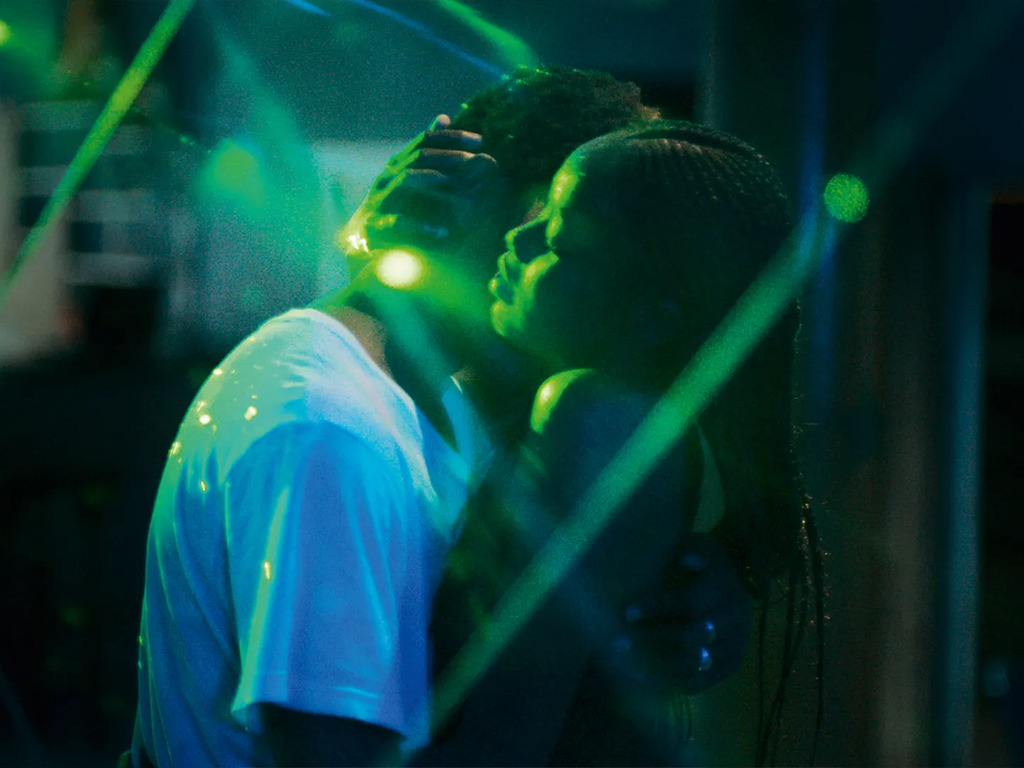Vibe:
I had a hard time writing an opening line for this section. Everything I came up with made me sound like a teen stoner. The gist of those failed sentiments is that with the ocean as a constant backdrop, "Atlantics" takes on a beautiful, rhythmic energy -- a combination of wild, crashing waves and the meditative stillness that comes after a storm. The experience is akin to an interpretive dance or lyrical poem. Director Mati Diop has a knack for embracing the quiet and letting important moments breathe.
Best time to watch:
Check out "Atlantics" when you want a movie that surprises you. My anxiety has been at an all-time high lately, making it tough for me to turn off my brain and really sink into a book or movie. I watched this before bed one night and was transfixed. The first 45 minutes made me think it was going to be a relatively straightforward story of star-crossed lovers, but then Diop swerved. Genres started to blend and morph to the point where plot became completely unpredictable. My super high expectations were far exceeded, making "Atlantics" one of my absolute favorites from 2019.
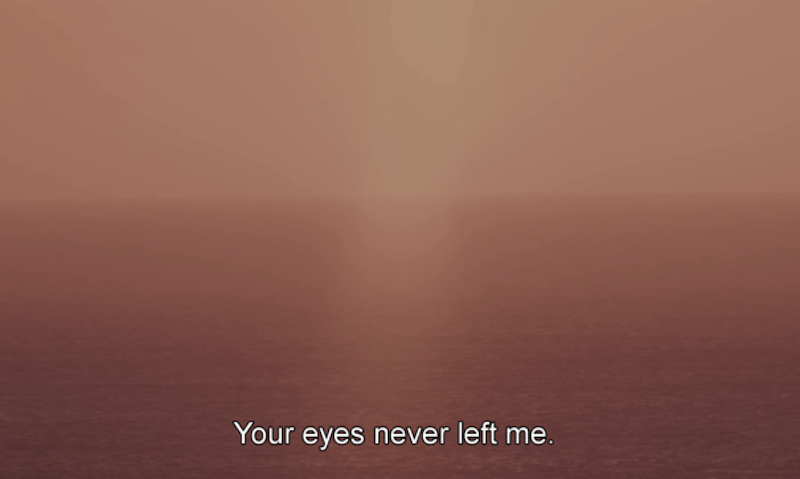
Worst time to watch:
If you're in the mood for something funny or uplifting, this isn't it. I didn't exactly feel depressed as the credits rolled, but definitely melancholic. For the best experience, watch "Atlantics" when you're able to get through the entire film without pressing the pause button.
Where to watch:
"Atlantics" is currently streaming on Netflix.
Quick summary:
Although her parents have betrothed her to someone else, Ada (Mame Bineta Sane) is in love with Souleiman (Ibrahima Traoré), a local construction worker who has become increasingly frustrated by his employer's wage theft. In an attempt to make money elsewhere, he and his co-workers set sail from Senegal to Spain. As Ada's wedding day looms and Souleiman's absence becomes permanent, shit takes a turn for the supernatural.
Thoughts:
I'm only interested in low stakes fluff when I'm feeling depressed. Give me all the movies you'd find on a plane or 10,000 episodes of "Project Runway." Watching people fight over unconventional challenge materials is the only conflict I can tolerate. Approximately 25 different people told me I had to watch "Atlantics," but I kept pushing it off because the trailer made it look pretty heavy. Worker strife, an arranged marriage, hordes of dead men, and a fire? Maybe I should just watch Christian Siriano serve up dramatic eye rolls for another 2 hours.
With the help of some weed, I pulled myself away from the runway and sojourned in Senegal. Unlike all of the previous shit I had been watching, "Atlantics" didn't lull me into a mild coma. The story is simultaneously universal and specific; the style is both unique and reminiscent of work by other filmmakers that I greatly admire. A deep current of feminism runs throughout. There are several images that will stick with me forever: white eyes against black skin, pulsing green and blue lights, and a speeding train interspersed with windswept faces.
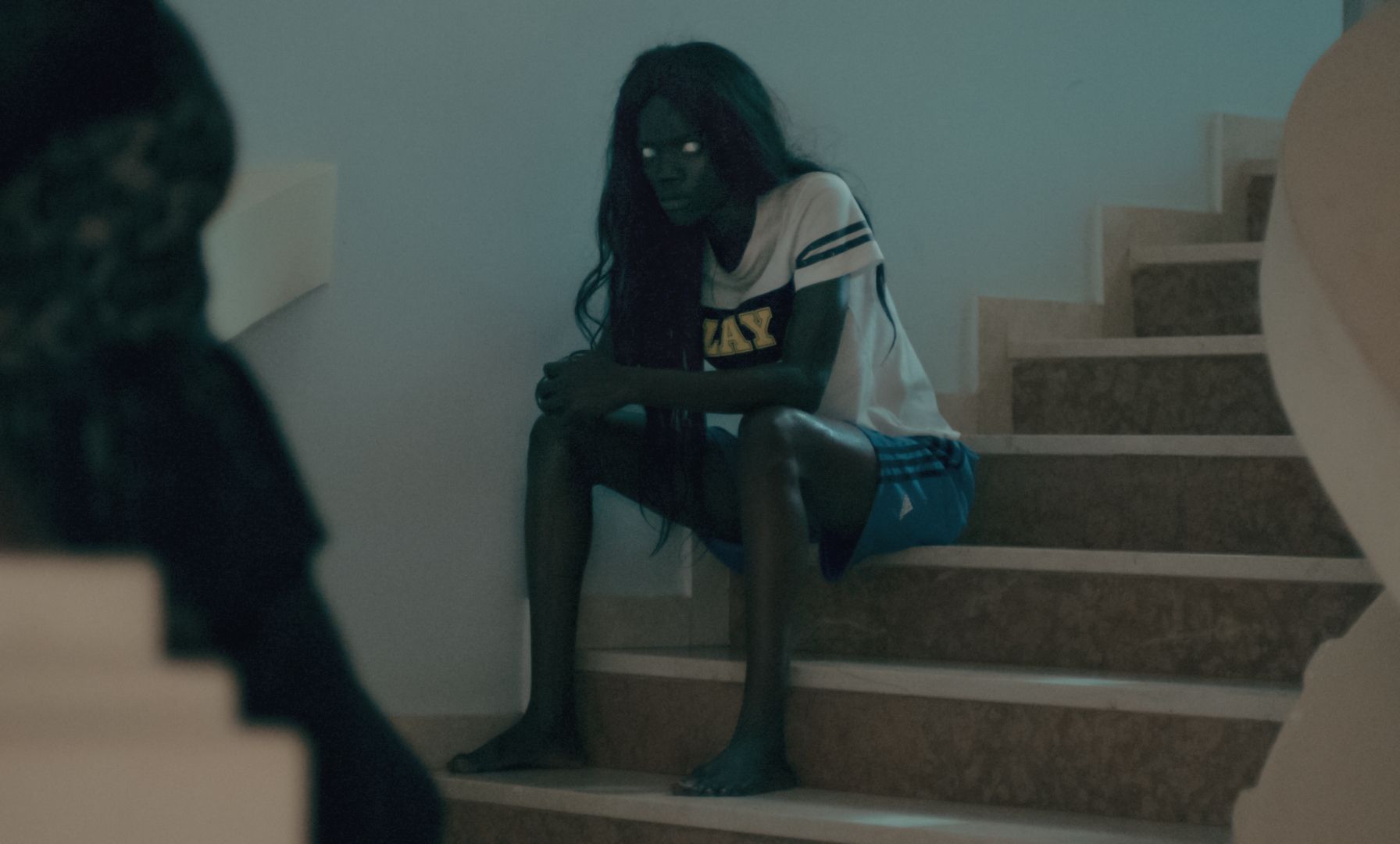
The film begins with a horde of male construction workers storming an office and demanding months of back payment. Few things make me angrier than seeing workers' rights violated, so I am immediately onboard. After causing mild ruckus that is met with bullshit excuses from the foreman, the workers ride a truck back to where they live. This scene reminds me that everyone suffers when gender roles are strictly enforced. In most instances, these men are the sole breadwinners for their families. If they don't bring home money, the financial hit becomes a burden that only they can alleviate.
As the workers head back to their village, the camera focuses on Souleiman, a striking man in a white shirt and gold chain. We follow him through the dusty streets until he comes to a stop at railroad tracks. As the train whizzes by, Ada appears in the space between cars. Despite what the first 8 minutes led me to believe, this is her story; the men are peripheral.
Ada might be engaged to Omar (Babacar Sylla), a wealthy man her parents have chosen, but her heart belongs to Souleiman. As they makeout in an abandoned building, Souleiman radiates with a sense of urgency that Ada shrugs off with a laugh. Unbeknownst to her, he plans to set sail for Spain that night in search of better employment opportunities. She has no idea that they can't "wait 'til tonight" because he'll be long gone by then.
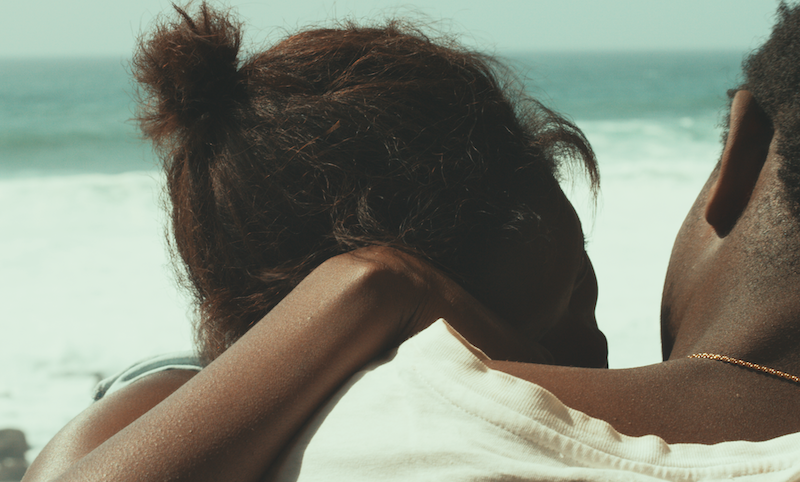
That night at the local bar, groups of women collectively mourn the men's absence. Ada is quietly devastated. After praying in her room the next morning, she retires to bed and refuses all meals. Her religious friend Mariama (Mariama Gassama) doesn't understand why she's so sad. Omar wants to wife her up, whereas Souleiman probably just wants to hit it and quit it (her words, paraphrased). Mariama worries that hanging out with women outside of the mosque ("those sluts") has negatively impacted Ada. Internalized misogyny is a bitch.
One of the most uncomfortable scenes is of Ada's "virginity test" at the behest of Omar's parents (T.I. would be proud). Ada's mother tells her, "You leave us no choice," which seems to indicate that her "slutty" behavior has called her "purity" into question. While we aren't privy to Ada's internal thoughts, it's clear that she thinks this entire process is bullshit. It's also blatantly obvious that she gives zero fucks about Omar. It's going to take more than a few gifts and a fancy apartment to convince Ada that he has anything to offer.
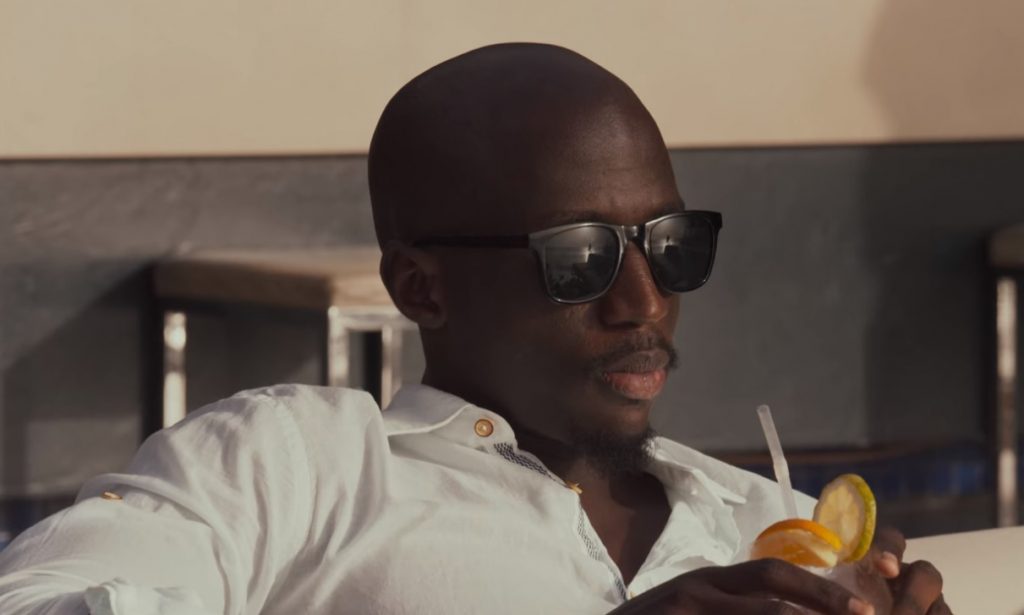
During Ada and Omar's wedding night celebration, a fire breaks out in the bedroom and burns their new white bed to a crisp. Police are called, accusations leveled, and Souleiman, who Mariama claims to have seen, becomes a suspect. Instead of pivoting to police procedural, the story moves in a completely different direction. Issa (Amadou Mbow), the lead detective on the arson case, succumbs to a mysterious illness along with several of the girls from the group at the bar. It seems pretty normal during the day -- fevers, chills, exhaustion – but becomes a full-blown possession at night.
The men on the ship to Spain have perished at sea, but that's not the end of their story. Their spirits return to Senegal, inhabit the bodies of their former lovers, and attend to unfinished business. In a feverish nocturnal frenzy, the possessed women manage to recoup their boyfriends' stolen wages and orchestrate a metaphorical burial. Instead of seeking retribution or peace, Souleiman has returned to consummate his relationship with Ada utilizing the detective's body. It's one part romantic, five parts devastatingly sad.
How can Ada or any of the women possibly move forward when they're perpetually haunted by the ghosts of former lovers? As Ada says, "Some memories are omens." Death is particularly devastating without a lifeless body to create a sense of finality. Men are there one day, gone the next, and women are left to pick up the pieces in a society that doesn't value them. The morning after Ada sleeps with Souleiman (via Issa), she says something interesting while looking in the mirror: "Last night will stay with me, to remind me who I am ... and show me who I will become. Ada, to whom the future belongs. I am Ada."
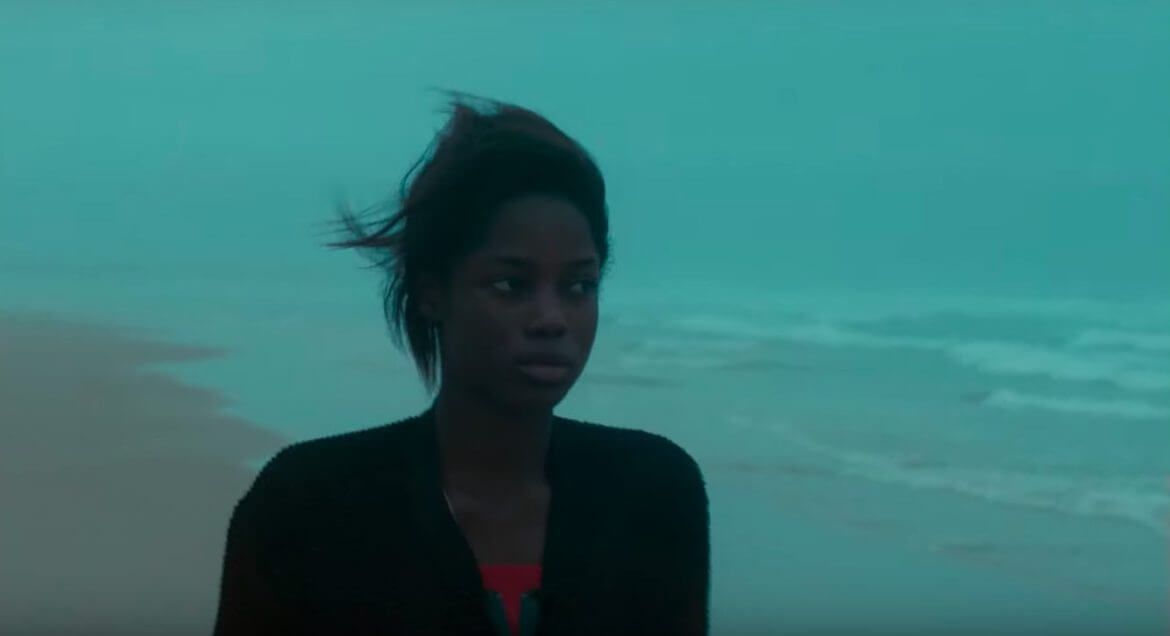
Sadly, Ada's future involves marriage to some dude she doesn't love. I was initially confused by these final lines and unsure if they should be taken as a statement of power or entrapment. Sex with a man is what it took to remind Ada who she is? Fuck that! Instead of a negative read, I choose to believe that this act of rebellion has shown Ada that she's the type of person who prioritizes love over patriarchal bullshit. Even though her life has been dictated by men, Ada will find a way to uncover and preserve her identity. They won't take that away from her, too.
Stray observations:
- Everyone should read Carlos Aguilar's great interview with Mati Diop.
- This feature film was born out of a 2009 short by the same name.
- "Atlantics" and Nijla Mu'min's "Jinn" (2018) would make for an interesting double feature.
- The cast is comprised of non-actors, which adds to the film's otherworldly, magical quality. It wouldn't work as well with familiar faces.
- Wolof and French might be the two most beautiful languages in the world. I wish I understood them and could watch without subtitles.
- This is the first film directed by a black woman to be nominated for the Palme d’Or at Cannes. "Parasite" ultimately took home that prize, but "Atlantics" won the Grand Prix.
- I'm flummoxed that "Atlantics" wasn't nominated for best international film at the Oscars. Will the female director snubs ever end? Fuck the Oscars.
- I would be remiss not to acknowledge Claire Mathon's gorgeous cinematography. You might recognize her from another 2019 banger, Celine Sciamma's "Portrait of a Lady on Fire." I love that my two favorite films of the year both feature her work. Fatima Al Qadiri also deserves a mention for her gorgeous synth score.
- Fanta's (Aminata Kane) Froot Loops shirt = my 2020 aesthetic.

